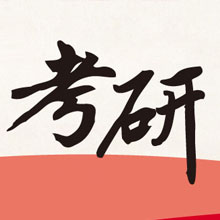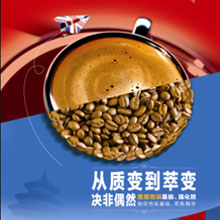新东方2016考研英语阅读每日精选:化妆品真的有效么?
2015-11-30 18:22 新东方
Skin-deep science?
化妆品真的有效么?
导读:那些声称让皮肤提亮有光泽的化妆品真的经过科学认证么?这些年我们深深相信的变美秘方到底可不可信?那些诱人的广告语经得住细想么?
Many beauty products, endorsed by some of the world’s most glamorous celebrities, promise things that are simply too good to be true. These products claim to use the most advanced science involving DNA, stem cells and nanotechnology. They boast of effects such as “refueling surface skin cells” and giving skin “a dewy glow”.
许多化妆品都由名人代言,他们承诺的效果如此美妙简直难以置信。这些产品声称使用了最先进的技术,包括DNA、干细胞还有纳米技术。他们号称可以用来“激活表皮细胞”,给肌肤“水润光泽”。
Can we believe in all these claims? This is the question asked by a new book exploring the pseudoscienceof beauty products. The book’s title is “Is Gwyneth Paltrow Wrong About Everything? How the Famous Sell Us Elixirs of Health, Beauty, and Happiness”.
我们可以相信所有这些承诺么?这个问题是一本旨在探索化妆品伪科学的新书提出来的。书的名字叫做《格温妮丝?帕特洛是不是完全错了?名人是如何将健康、美丽及幸福的万能药兜售给我们的》。
The author, Timothy Caulfield, is a professor of law and public health at the University of Alberta in Canada. He spent the past few years looking at scientific literature and testing out celebrity health and beauty tips, reported vox.com. Some of these tips are simply pseudoscience, such as detoxing by only drinking juice and keeping fit by only choosing organic food.
书籍作者蒂莫西?考菲尔德是加拿大阿尔伯塔大学法律与公共卫生系教授。据综合类网站vox.com报道,他过去几年花时间研究了科学文献,并对名人给出的健康和美丽秘诀进行了检验。结果证明,其中的一些建议完全是伪科学,比如说只喝果汁可以排毒,只选择有机食物就可保持健康。
“Publishers don’t generally sell magazines by reminding readers that nothing works,” writes Caulfield. “Consequently, getting straight answers about anti-aging and beauty products is nearly impossible.”
考菲尔德写道:“出版商如果告诉读者什么都不管用,一般也卖不出杂志。因此,这些关于化妆品的广告和建议一般不对化妆品的效果给出明确的答案,而是使用一些模糊词汇。”
He concludes that phrases such as “clinically proven” or “dermatologist approved” are as vague as they are evasive.
他的结论是,那些声称化妆品经过了“临床验证”或者“皮肤科专家认可”的遣词用语既混淆视听又逃避事实。
Research void
研究空缺
“For example, what kind of study led to the representation that a given product was clinically proven?” he asks. “Did the manufacturers simply ask a couple of buyers? Do not be fooled by this kind of language.”
他问道:“比如说,什么样的研究可以得出某项产品是经过临床验证的?难道是制造商随便问问几个买家就可以?不要被这些用词给骗了。”
“In addition, little literature produced by independent researchers is out there. For many beauty products, there seem to be either no data or only small studies produced by proponents of the product.”
“除此之外,市面上甚少有第三方研究人员做出的研究成果。许多化妆品都是要么没有数据支撑,要么就是由产品的一些拥趸提供小范围调研。”
To some degree, this is understandable, says Caulfield: “Government research entities have little interest in funding big studies on the efficacy of, for instance, the bird-poop face cream used by David and Victoria Beckham. So there isn’t a lot of good science to draw on.”
考菲尔德认为,某种程度上来说,这是可以理解的:“政府研究部门几乎没有兴趣资助大型研究去试验大卫贝克汉姆和维多利亚贝克汉姆用的鸟屎洗面奶效果怎么样。因此,没有什么正经科学可以用来考证。”
To make matters worse, says Caulfield, mass media are rarely critical of new beauty products. The vast majority of articles simply trumpet their alleged value, using vague phrases such as “feel revitalized” and “appear radiant”. It’s difficult to find any evidence or expertise beyond personal testimonies. The so-called experts who are quoted in these stories are often part of the beauty industry or individuals with no research background.
考菲尔德称,更糟糕的是,大众媒体很少去评判新型化妆品。大多文章都只是吹嘘他们所谓的功效,使用一些似是而非的词汇如“焕发新生”和“光彩照人”等。除了普通人提供的证明之外,很难找到任何其他证据或者专业解答。这些故事里引用的所谓专家都是美容业的一份子,或者是没有任何科研背景的个人。
An article from Pacific Standard magazine also points out terms such as “clinically proven” or “dermatologist recommended” have no industry standard definition. And since most manufacturers aggressively guard their products with patents or laws that protect trade secrets, consumers have no way of knowing what is actually in the products or how they were tested.
科学期刊《太平洋标准》中的一篇文章同样指出,诸如“临床验证”或者“皮肤科专家认可”这类术语没有产业标准认证。它们还用专利法规和其他保护商业机密的法律来保护他们的产品,因此消费者根本无法知道产品真正成分,也不知道它们是怎样经过检验的。
编辑:张雨
联系我们
版权及免责声明
① 凡本网注明“稿件来源:新东方”的所有文字、图片和音视频稿件,版权均属新东方教育科技集团(含本网和新东方网)所有,任何媒体、网站或个人未经本网协议授权不得转载、链接、转贴或以其他任何方式复制、发表。已经本网协议授权的媒体、网站,在下载使用时必须注明“稿件来源:新东方”,违者本网将依法追究法律责任。
② 本网未注明“稿件来源:新东方”的文/图等稿件均为转载稿,本网转载仅基于传递更多信息之目的,并不意味着赞同转载稿的观点或证实其内容的真实性。如其他媒体、网站或个人从本网下载使用,必须保留本网注明的“稿件来源”,并自负版权等法律责任。如擅自篡改为“稿件来源:新东方”,本网将依法追究法律责任。
③ 如本网转载稿涉及版权等问题,请作者见稿后在两周内速来电与新东方网联系,电话:400-0551-888。



